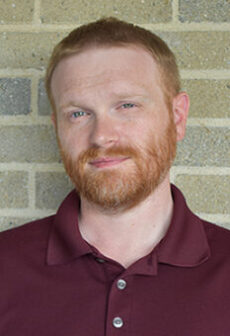Choose a glorious life in God’s will

Shawn Reeves
By Shawn Reeves
Fourth Sunday of Advent/Dec. 22
Isaiah 7:10-14; Psalm 24:1-2,3-4,5-6; Romans 1:1-7; Matthew 1:18-24
There is a saying — “death is inconvenient.” It comes suddenly and alters all the patterns of our experience. But life, also, is often inconvenient. Doctor visits need to be scheduled. The home needs to be prepared. Car seats need to be installed. A family must adapt to novel considerations and adjust its course beyond what it is accustomed to.
Yet life is glorious, as well. An effervescence arises in the heart. A fresh adventure emerges. Something marvelously new and permanent is about to be revealed. A person will soon be discovered.
In our first reading, King Ahaz had his own plans and found God’s inconvenient. While God generously offers to Ahaz the invitation to name the sign God would perform to prove Judah’s coming deliverance from a military threat, Ahaz refuses, feigning respect for God with the words, “I will not ask! I will not tempt [or test] the Lord!” Veiled in a dishonest piety, Ahaz has no confidence in God and no tolerance for an agenda not of his own making. 2 Kings Chapter 16 chronicles all the ways “he did not do what was right in the sight of the Lord his God,” including obscure rituals apart from the temple and even child sacrifice. Along with these, he despoiled the temple, offering its articles of silver and gold to the Assyrian king as tribute in exchange for military defense.
Ahaz would ask for no sign because he wished there to be no sign. But God would supply one, nonetheless. A child shall miraculously be born. God will prove His nearness through him, Emmanuel — “God is with us.”
SIGN OF DEVOTION
Similarly, in our Gospel reading, the drama of this tension between inconvenience and marvel in St. Joseph’s life is displayed before us. He had planned none of it. It was not his agenda for his life with Mary, and he was caught utterly unprepared.
Both the Church Fathers and modern scholars disagree on what exactly was the cause of Joseph’s apprehension. Some, like St. Augustine held that Joseph suspected Mary of infidelity. Others, like St. Jerome, posit that Joseph is perplexed by the inexplicability of her pregnancy, unbelieving that Mary could be unfaithful. Still, those such as St. Thomas Aquinas held that Joseph perceived something miraculous and settled into an uneasy, pious fear of being unworthy to participate in such an event until the angel assures him, “do not be afraid.” At any rate, he consigned himself to “divorce her quietly” — that is, until God provides a sign, an invitation into this divine mystery.
Through the appearance of an angel in his dream, he reassesses his situation and emerges with complete confidence in God and “did as the angel of the Lord had commanded him.” Unlike Ahaz, St. Joseph submits to the will of God, altering his own designs in favor of God’s, aligning his plans with those of the Lord.
Even St. Paul, in our second reading, hints of making adjustments to his life through an intervention of God. Having once been a leader amongst the Pharisees, he later found himself “called to be an apostle and set apart for the gospel of God,” his entire life redirected when he suddenly “received the grace of apostleship” and submitted to his status as “slave of Christ Jesus.” What both St. Paul and St. Joseph possessed that Ahaz did not was trust in God through “the obedience of faith,” which permitted them to accept, in love, the demands of the sign no matter what it may be, “deep as the netherworld, or high as the sky,” a confounding pregnancy or the appearance of the resurrected Lord.
Gracefully forfeiting the path we prefer in favor of the path chosen by another is a critical element of genuine love. It is the inconvenient impulse of fidelity. For when we choose it, a sign of our devotion is given. An offering of unity is submitted. A new bond is fashioned. Our vision is fixed on another, anew. And a person will soon be discovered.
—
SHAWN REEVES has served as the director of religious education at St. John’s Catholic Newman Center in Champaign since 2001. He and his family attend St. Elizabeth of Hungary Church in Thomasboro.





